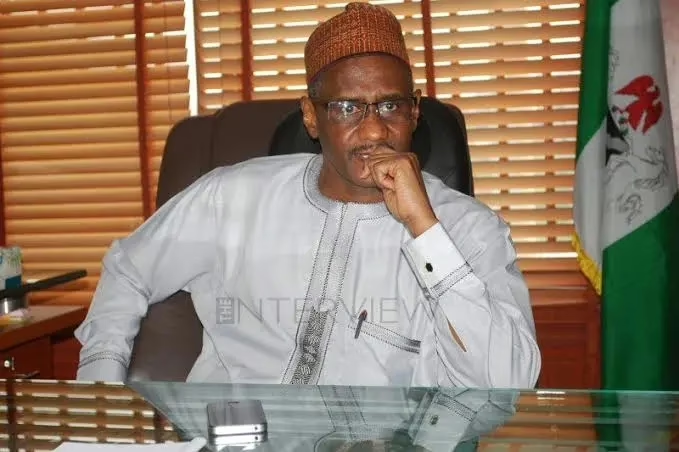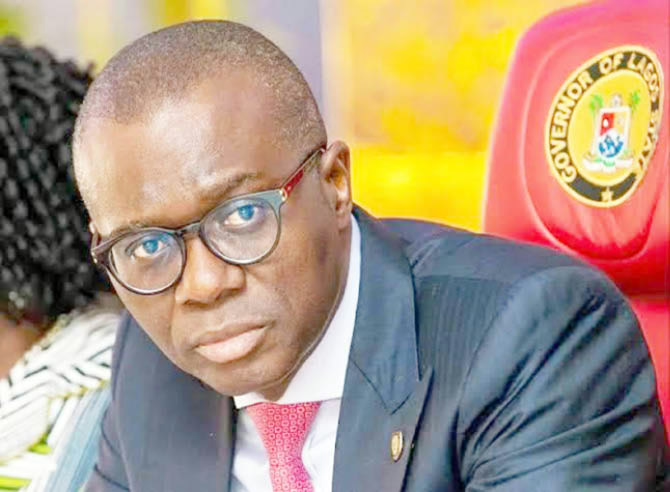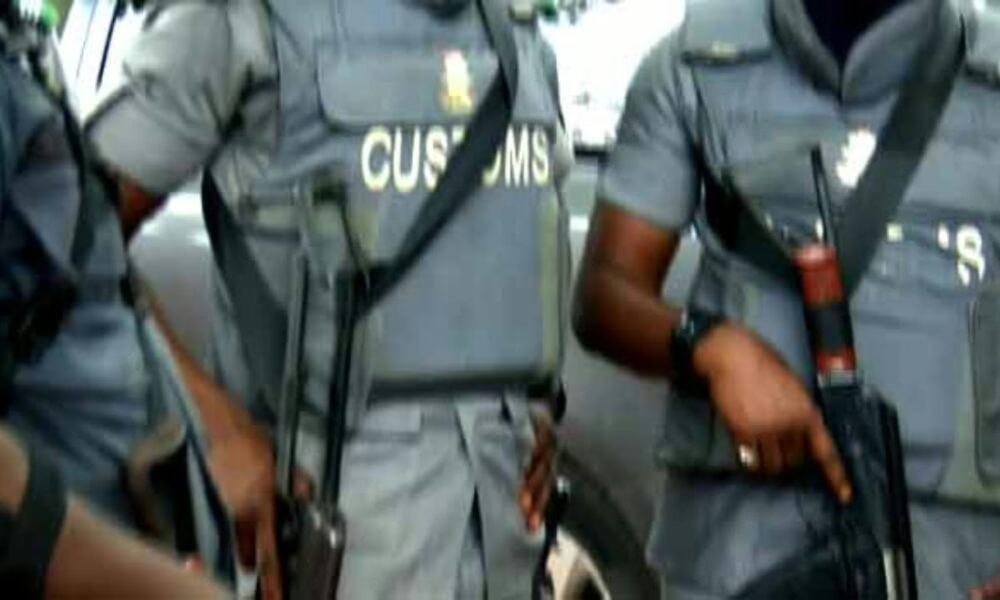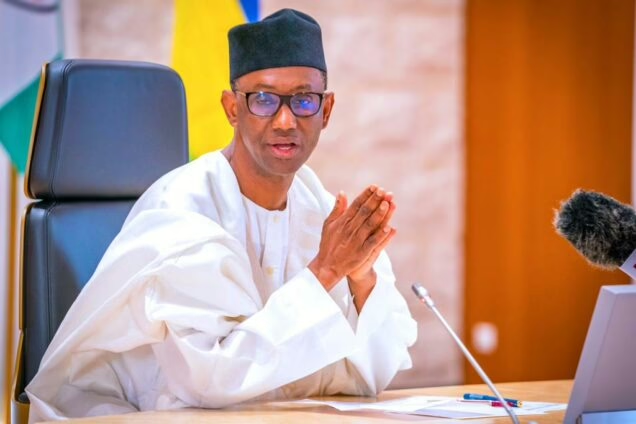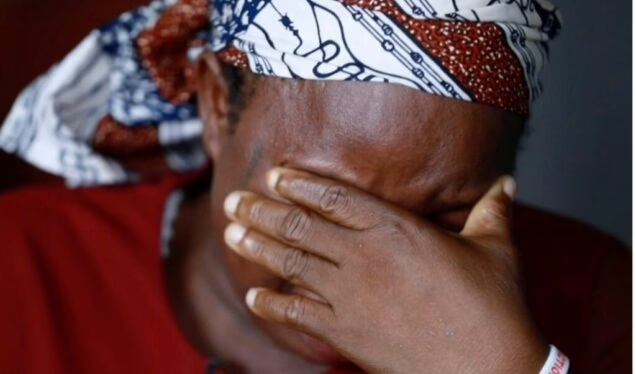Former Executive Secretary of the National Health Insurance Authority (NHIA), Prof Usman Yusuf, who is facing corruption allegations has detailed his experience in the hands of security operatives and officials of the federal correctional service.
Yusuf, a Professor of Haematology and Bone Marrow Transplantation, had been a vocal critic of President Bola Tinubu, his government and policies.
His travail reportedly began after a viral interview criticising Nigeria’s new found romance with France among other public commentaries that allegedly unsettled the government.
@media only screen and (min-width: 992px){#div-vi-1716478739{width:728px !important;height:90px !important}}
He was recently arrested by officials of the Economic and Financial Crimes Commission (EFCC) and subsequently slammed with a five-count charges bordering on alleged embezzlement and conferment of undue advantage to himself, as the boss of the NHIA in 2016.
He pleaded not guilty to all the charges in court.
But on Wednesday, an FCT High Court shifted ruling in his bail application.
Justice Chinyere Nwecheonwu ruled that he be remanded in the Nigerian Correctional Service facility in Kuje, FCT pending the ruling on February 27.
But following the ruling, Prof Yusuf in lengthy response to his ordeal described the whole scenario as a ploy by the President to silence him.
Professor Yusuf said he has full confidence in his legal team to “vigorously defend me against the baseless recycled falsehoods the EFCC charged me with.
He said the family was deeply touched and remained eternally grateful for the overwhelming support from people all across the country and abroad.
He assured Nigerians that he would never be silenced by Tinubu’s “dictatorial and autocratic leadership, which is forcefully suppressing any legitimate opposition to his misrule of our fatherland”.
According to him, well-meaning Nigerians should resist “these dangerous traits that are reminiscent of the dark days of military rule in Nigeria”.
He revealed that he had the haunting presence of the state stalking him since he started publicly criticising the policies of President Bola Ahmed Tinubu’s.
“The security agents have been physically and electronically tracking my family and I on the orders of this government.
He said the trigger for his ordeal was the Northern Youths Summit in Bauchi last month.
His fifteen days account of his detention and incarceration reads:
“On Wednesday, 29 January 2025, at around 6:30pm, as I was preparing to break my fast, my wife came upstairs to inform me that two gentlemen in black suits knocked at the door and came inside the house, saying I knew they were coming. I came downstairs in my Jallabiyya (robe), no cap, with bathroom slippers to meet these gentlemen who introduced themselves as operatives of the Economic and Financial Crimes Commission (EFCC) directed to take me to their headquarters.
“I asked them for their badges, which they showed me with an apology for the oversight. I asked for an arrest warrant, and they told me that they did not need one. I also asked why I was not sent any formal invitation letter before this intrusive visit. I then asked to be allowed to go upstairs to change but was physically blocked by these operatives. I also asked for my wife to be allowed to go upstairs and bring me a change of clothing, but they refused to allow that.
“On stepping outside the house, there were 5 armed mobile policemen, some deployed to the back of my house, presumably to prevent me from escaping through the back door or window. The engine of the bus they came in was left running with the driver sitting inside.
“In the heat of argument, my wife got into a shouting match with the lead operative, which made her say a few unpleasant words that provoked him and the rest of his team.
“My 14-year-old daughter was understandably very shaken by this act of state terror. I shouted out some words of consolation to her because I was blocked from going close to hug and talk to her. I asked my wife to call my brothers and Lawyers to let them know.
“The lead operative angrily seized my phone from my hand and literally bundled me onto the bus, seating me between him and an armed mobile policeman.
“The driver then zoomed off, driving crazily, sometimes against the flow of traffic to the EFCC headquarters. All the dark-suited operatives and the five armed mobile policemen in the bus were gleefully high-fiving themselves as if they had captured Kachalla Bello Turji, the notorious Zamfara bandit kingpin.
“Let us be clear, the main purpose of these cowardly Gestapo tactics by the EFCC was to use the instrument of state to intimidate and terrorise my family. As for me, I was not the least impressed or intimidated by this shameful act of state terror.
“On arriving at the EFCC, the five armed mobile policemen were dismissed with a part on the back for a job well done while I was escorted by the dark-suited operatives upstairs to the office of head of Procurement Fraud Section (PFS) to whom I introduced myself and asked why he sent his operatives to abduct me from my house to his office. He just handed me a bunch of papers, and he said were my charges asking me to sign, which I did after some back and forth.
“I asked him for a bottle of water to break my fast, which he obliged, and to be allowed to call my wife. Unfortunately, my phone battery had run down. I was refused a phone call to tell my wife and daughter where and how I was.
“After signing and collecting a copy of the charges against me, the boss PFS who seemed in a rush to close for the day, asked his assistant to take his bag downstairs to his car as if I was the last item on his to-do list for the day.
“No one told me why I was abducted, whether or not I was going to be detained, when I would be allowed access to my family and Lawyers, or when I would be arraigned in court to answer the charges labelled against me.
“I was then taken on foot around the main building to the detention cells. After being processed, I asked to be allowed to say my evening prayers (Maghrib and Isha), after which I was taken to my cell, which I shared with three other detainees.
“Many of the detainees, especially the youths, recognised me and came over to greet and offer their prayers and best wishes. My three cellmates accorded me all the courtesy and respect befitting my grey hairs. They gave me a sachet of pure water and a cup of hot tea, which helped ease my headache, resulting from caffeine withdrawal and hunger from 20 hours of fasting.
“Detainees sleep on thin mattresses that touch each other on a bare floor. My cellmates offered me the privileged position of being next to the wall.
“It was now 11 p.m., the lights were turned off, and the cell doors were locked with keys from outside. I laid down in the dark, pained that I had not spoken with my wife and daughter to tell them where and how I was doing.
“Soon after the lights went out, one of my cellmates started snoring loudly, ordinarily, this would have kept me awake, but I fell asleep until awoken by the metallic clanging sound of the cell guards opening the cells for morning prayers at 5am. We came out to say our prayers in a small recess on the corridor.
“My name was called out at 7am on Thursday, 30 January 2025, and told to get ready to be taken to court at 8am. On coming out of the building housing the detention cells with my interrogation officer (IO), a photographer of the media unit of the EFCC was strategically stationed to be taking my pictures unshaven, in bathroom slippers, no cap and in the same clothing that I was abducted from my house the evening before.
“It was then very obvious to me that one of the directives to the EFCC was to publicly humiliate, demunanise, and weaken my spirit in addition to smearing my reputation and integrity with frivolous made-up charges.
“When I got into the bus, I jokingly told the operatives that they had forgotten to put on hands and legs, cuffs, and chains on me. They busted out laughing, saying, “Haba Oga, e no reach dat level”.
“The judge adjourned the date of my arraignment to Monday, 3 February 2025, because lawyers of the EFCC were not prepared, which meant four more days of detention in EFCC’s cell for me.
“On arriving back at the EFCC, my wife was waiting with a fresh change of clothing and a home-cooked meal; the last time I had anything to eat was about 40 hours ago.
“I gently reminded her that our fight is not with the EFCC or its operatives but with President Bola Ahmed Tinubu’s corrupt and tyrannical government. I convinced her to come upstairs with me for her to apologize to the operative she got into a shouting match with when they came to our house to abduct me the night before. Her apology worked magic because it got me an upgrade from the cell I shared with three other detainees to a single cell all to myself.
“The boredom of detention was eased by visits from family and friends, taking walks on the long corridor of the cells, reading the Qur’an, getting enough rest and mentally tuning out of the hustle and bustle of the outside world, I felt the comforting warmth of an inner peace and calmness that I had never experienced in my life.
“On the day of my arraignment on Monday, 3 February 2025, the Court was packed full with lawyers, youth organisations, and activists. After my arraignment, the judge ordered that I should be remanded in Kuje Prison until 12 February 2025, when she could hear my Lawyers’ bail application.
“This ended my six days of detention in the EFCC and the beginning of nine days of Incarceration in Kuje Prison. I was promptly taken to the Prison by EFCC operatives in their bus and handed over to the Nigerian Correctional Service,
“For my first 9 days of incarceration in Kuje Prison, it started from Mon. 3 to Wed 12 Feb. 2025
“The name Kuje Prison from the outside feels like going to the dark beyond. My experience from the first day I got in to the day I exited was anything but. I found the staff of the Nigerian Correctional Service in Kuje to be compassionate, courteous, supportive, and very professional in the conduct of their duties. They treated the inmates, majority of whom are youths, as humans with the utmost of respect, support, and understanding.
“I was processed and taken to my new home, called the segregation unit, which houses VIP inmates. Although the setting is relaxed with some few privileges, one is constantly reminded of the loss of his freedom by round the clock presence of guards, CCTVs in the hallway and the courtyard that are monitored both within the Prison and remotely at the headquarters and the fact that the guards locked the door to each cell from the outside each day at 8pm and opened next day at 7am which is 11 hours locked up in a hot cell measuring about 10 by 6 feet with only one window.
“The 13 hours of freedom within the Prison yard are invaluable. One could freely walk to the mosque on the other side of the Prison for Zuhr and Asr, the only 2 prayers that are done in a congregation in the mosque because prisoner cells are locked from 6pm to 9am.
“Kuje Prison brought back memories of my boarding school days with the prisoners policing themselves. Each prisoner knows his assigned job the moment they are let out of their cells in the morning. The yard is kept very clean, and the relationship between wardens and the prisoners is that of mutual respect.
“The prisoners seemed aware of happenings on the outside. Many of them would come to me to offer words of support. As soon as they found out who I was, I kept getting requests to meet with various individuals and groups who wanted me to advocate for them when I get out, they seemed to have forgotten that I also had my own wahala.
“I sat down with and heard from young men accused or convicted of being Boko Haram, Bandits, IPOB, Shiites protesters, armed robbers, drug traffickers, murderers, rapists, lifers, 419ers, the list of alleged crimes goes on and on. I also went to the Prison clinic to meet with the staff and patients. I visited the kitchen where prisons did the cooking. I went to and talked to prisoners in the skills acquisition workshops, the small sparsely stocked library and the Nigerian Open University building. I didn’t enter the cells of the inmates but watched them play football matches.
“It was very sad to see our youths in the prime of their lives wasting away. What was very painful to hear was the stories of many prisoners awaiting trial some for over 10 years. Kuje Prison with an original capacity of 560 inmates, now holds 960 with 198 (21%) convicted while 765 (79%) awaiting trial.
“I considered my spending time in Kuje Prison as a blessing and an education I would never have gotten from any classroom. It was a privilege to hear and see the sufferings, trials and tribulations of these young men. I promised to do my part when I get out to reach officials and agencies that can help make things better”.
Discover the latest trends on Temu! Shop mobile phones, fashion, beauty, home essentials & more. Start exploring now!
Click here to learn how it works.
Unlock AI’s potential! Get top prompts for content, blogs, social media, research, draft proposals and more. Boost creativity start using AI tools today!
Click here to learn how it works.
Start Affiliate Marketing Today! Learn step-by-step how to set up a blog, find programs, create links, and earn money—beginner-friendly guide inside!
Click here to learn how it works.
Join our FREE WEBINAR! Discover the 3-step formula to turn WhatsApp into a cash-generating machine. Sign up now and start earning!”
Click here to learn how it works.
Master Facebook Ads! Learn to set up Business Manager, run campaigns, optimize budgets, and drive sales. Start your journey to ad success today!”
Click here to learn how it works.
Unlock your confidence and attract the love you deserve! Learn how to become irresistible to women—start your transformation today!”
Click here to learn how it works.
 Join Daily Trust WhatsApp Community For Quick Access To News and Happenings Around You.
Join Daily Trust WhatsApp Community For Quick Access To News and Happenings Around You.

